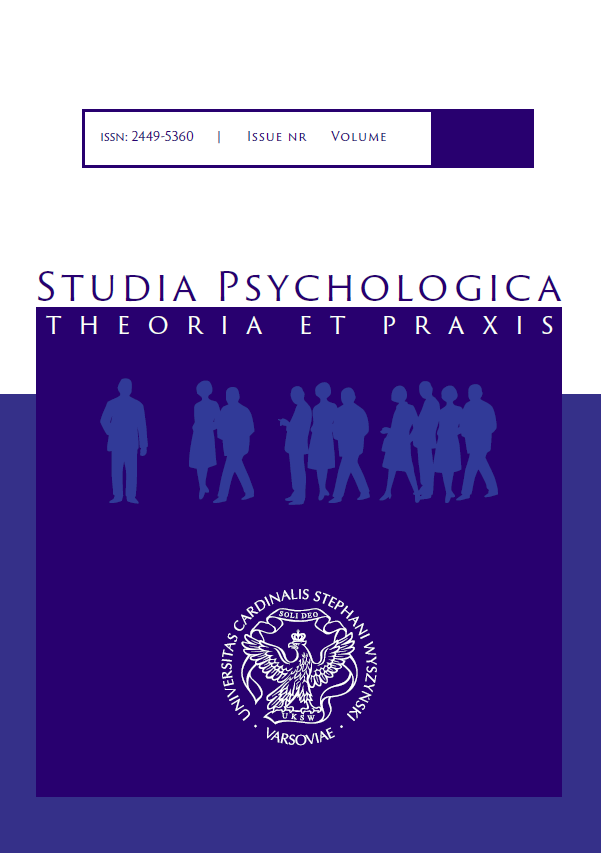ADVERSE CHILDHOOD EXPERIENCES AND
OBSESSIVE-COMPULSIVE PERSONALITY
TRAITS: MEDIATING EFFECTS
OF ATTACHMENT AND METACOGNITION
ADVERSE CHILDHOOD EXPERIENCES AND
OBSESSIVE-COMPULSIVE PERSONALITY
TRAITS: MEDIATING EFFECTS
OF ATTACHMENT AND METACOGNITION
Author(s): EMILY GRAY, SIMON BOAGSubject(s): Cognitive Psychology, Behaviorism
Published by: Wydawnictwo Naukowe Uniwersytetu Kardynała Stefana Wyszyńskiego w Warszawie
Keywords: adverse childhood experiences; mediation; metacognition; personality; obsessive-compulsive;
Summary/Abstract: Adverse childhood experiences are regularly implicated as a risk factor in the development of Obsessive-Compulsive Personality Traits (OCPT). Nevertheless, the majority of individuals exposed to adverse childhood experiences do not go on to develop adult OCPT. This study aimed to investigate whether attachment or metacognition best mediate the association between adverse childhood experiences and OCPT. Undergraduate psychology students (N = 194) participated in a 30-minute anonymous online survey, and completed a retrospective adverse childhood experiences measure, along with measures of current attachment, metacognition, OCPT, and depression. Bootstrapped mediation revealed that attachment-anxiety positively mediated between adverse childhood experiences and OCPT. Mediation was not found for either attachment-avoidance or metacognition. These findings provide preliminary evidence that attachment-anxiety may be important for understanding the effects of adverse childhood experiences on OCPT development. Additionally, the findings suggest that future research should investigate the predictive role of specific types of adverse childhood experiences. The potential clinical utility for both assessment and treatment effects based on the co-occurrence of adverse childhood experiences and heightened attachment-anxiety on OCPT are discussed.
Journal: Studia Psychologica: Theoria et praxis.
- Issue Year: 24/2024
- Issue No: 2
- Page Range: 4-14
- Page Count: 11
- Language: English

